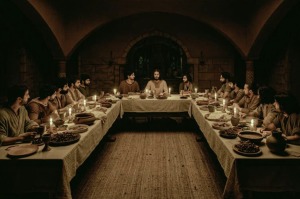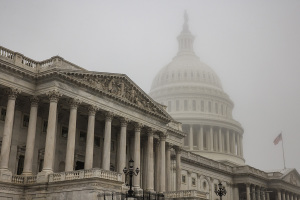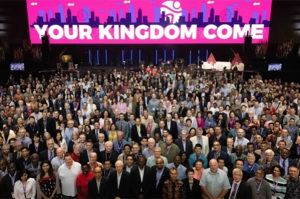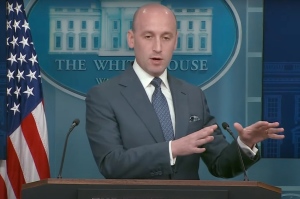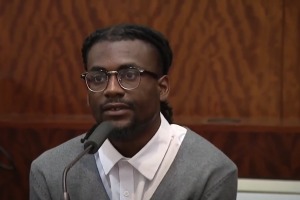Os Guinness: America Needs a Churchill
America stands at a crossroads pregnant with both immense challenges and immense possibility, but no leaders have emerged who seem willing to acknowledge the current crises and capable of charting a path forward, Os Guinness exclaimed Tuesday. Guinness was speaking at a Washington, D.C.- event hosted by The Trinity Forum about his new book, A Free People's Suicide: Sustainable Freedom and the American Future (2012).
In the book and his remarks at the event, Guinness argued that while Americans have completed the tasks of winning and ordering their freedom, they are failing at the important task of sustaining their freedom. In response to a question from the audience, he decried the lack of good leaders from either political party today.
Someone had remarked about the recent Democratic and Republican conventions, Guinness recalled, that they were more Pat Boone than Winston Churchill.
"When I read that, I couldn't help thinking, that's exactly right," Guinness said.
Guinness spoke admirably of his memories of Churchill. He noted that he was born when Churchill was prime minister of England. He grew up during Churchill's leadership and listened to all his recorded speeches.
Churchill "always addressed the moment with an incredible sense of history and the stakes for democracy, whatever it was," Guinness recalled.
But, when one listens to the speeches of political leaders today, Guinness complained, "they're not addressing the world I know as I open my eyes and look out there, and this is tragic. We need leadership that is really addressing the state of the world and the state of America."
The audience chuckled as Guinness then described the State of the Union Address' given by modern presidents each year.
"You have required annually a state of the union address. But when did you last hear a president really describe the state of the union? No. They're political rallies, applause queued lines with senators and congressman bobbing up and down like puppets.
"When are we going to have serious leadership on the level of some of the greats we've had? Hopefully we will, but we don't now," Guinness concluded.
Guinness also spoke about the importance of understanding globalization, which he called the "central fact of our time."
"We're at the end of 500 years of Western dominance and the reason for that is globalization," Guinness said, "... we've shifted from what's called a singular modernity, that is one nation advancing a single modernity, ... now we're in a world of multiple modernities. So, you've got an Asian modernity, you've got a European modernity and you've got an American modernity and each country, as well as each continent, is free to adapt to the global world with their own history and their own values."
Americans will have to adapt to this new world, Guinness explained, just as Britain had to adapt to the end of its era of dominance.
"The nonsense about, 'we're gonna have another American century,' is just hubris. The day of easy American dominance is over. Not because it has anything to do with American decline necessarily, but simply this is another world," Guinness remarked.
In an interview with The Christian Post before the event, Guinness answered a question about Republican presidential candidate Mitt Romney's recent remarks caught on a hidden camera. Romney said that the 47 percent of the country who pay no federal income taxes will not vote for him because they are dependent on government.
"I think [Romney's remarks] were unguarded and foolish and very damaging to him," Guinness explained, "because clearly his categories were far too simplistic. And to divide America into makers and takers, as people have said, simply isn't true. There are lots of people depending on the government who are good, honest citizens who have worked all their lives."
Guinness, the great-great-great grandson of famed brewer Arthur Guinness, was born in China to medical missionaries and raised in England. He holds a doctorate degree from Oriel College, Oxford, has been a guest scholar at the Woodrow Wilson Center for International Studies and the Brooking's Institution, and has authored of over 25 books. He is currently a senior fellow at The Trinity Forum.
















